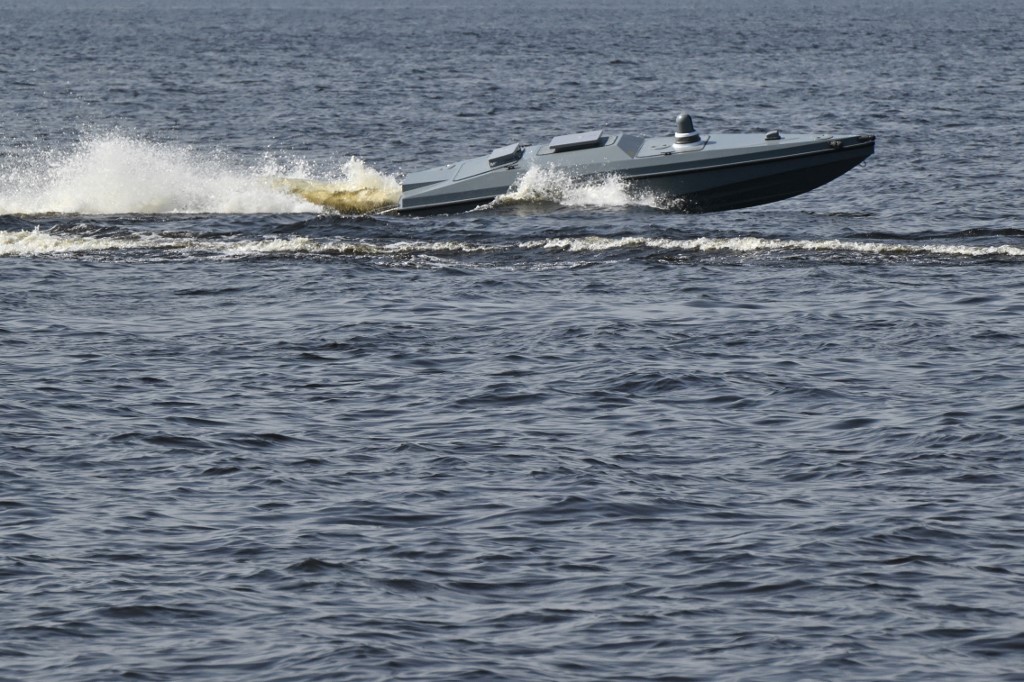The Swedish Ministry of Defense (MoD) formally announced its 17th military aid package for Ukraine on Monday, Aug. 9. It has a value of around 4.6 billion Swedish kronor ($ 445 million) and, unlike previous support focuses primarily on the procurement of new military equipment for Kyiv.
Sweden says the allocation is designed to meet many of Ukraine's priority military needs and includes RB 70 man-portable air defense systems (MANPADS), anti-tank weapons, 40mm ammunition for CV 90 combat vehicles, grenade launchers, anti-tank mines, combat vehicle camouflage kits, winter clothing and equipment, six Stridsbåt 90 fast patrol boats and other marine equipment as well as funding for Ukrainian and multi-national programs such as the International Fund for Ukraine (IFU) and Czech ammunition procurement initiatives.
JOIN US ON TELEGRAM
Follow our coverage of the war on the @Kyivpost_official.
Sweden is in the process of upgrading much of the Gripen JAS 39C/D models to the newer JAS 39E variant, which has meant that a certain number of the older aircraft were being cannibalized for parts. Sweden currently has just under 100 JAS 39C/D Gripen variants in service which were originally planned to be phased out in favor of modernized JAS 39Es. Following Russia’s 2022 full-scale invasion of Ukraine the government opted to increase the size of its air force.
Although there are currently no plans to transfer the Gripen to Kyiv, half of this funding package will, be used for the purchase of components for Saab JAS 39C/D Gripen aircraft, The separate purchase of parts necessary for the modernization of the 39Es means that a number of 39C/Ds will be spared and could be made available to Ukraine.

Ukraine Becomes International Criminal Court Member State
Sweden plans to maintain a 120-strong Gripen fleet by 2030, consisting of 60 JAS 39C/D and 60 JAS 39E variants. After considering factors such as airframe fatigue, training needs, and other aspects Stockholm could likely have between 20 and 30 Gripen JAS 39C/Ds available for other use, including possible transfer to Ukraine.
The Swedish MoD said, “By acquiring new material parts, a certain number of the JAS 39C/D jets will be preserved from dismantling, allowing for their potential future transfer to Ukraine, pending a decision by the Swedish government.”
Stockholm’s Defense Minister Pål Jonson also indicated the door was still open saying, “We are taking steps to maintain our freedom of action to give the Gripen to Ukraine at a possible later stage,” according to Sweden’s Aftonbladet news site.
In his thank you message on X / Twitter, Ukrainian President Volodymyr Zelensky did not address the Gripen donation: “This important assistance, including anti-aircraft systems, anti-tank weapons, and financial contributions to address Ukraine’s urgent needs, will enhance our defense capabilities.”
Earlier discussions over the possible transfer were abandoned over concerns by Sweden, Ukraine and some NATO allies that this would complicate the acquisition of F-16 fighters and impose a heavy logistic and maintenance burden that Ukraine would struggle to achieve. However, the possibility was never actually taken off the table and is regularly mentioned by analysts and military strategists.
As recently as July Ihor Zhovkva, Deputy Head of Ukraine’s Presidential Office told the Euromaidan press: “I have never heard of Ukrainians refusing to buy Gripen fighter jets. On the contrary, this is a topic that my president constantly raises with the Swedish leadership.”
Zhovkva added that Gripens “are as good as F-16s, and we are moving in this direction.”
This view was endorsed by the aviation chief of Ukraine’s Air Force, Brig. Gen. Serhii Holubtsov, who had previously said the Ukrainian infrastructure was ready to accommodate Gripens.
Many commentators think Gripen would have been a better choice for Ukraine than the F-16 because of the varied and dynamic combat battlespace that exists in the war in Ukraine. Gripen has state-of-the-art avionics and electronic warfare systems, is smaller and less complex than the US aircraft, and has full interoperability with most NATO weapons systems – including those held by Ukraine.
Gripen can use shorter runways without needing a drag chute and was designed to be deployed in operations using roadways and ordinary fields and maintained by small teams with limited infrastructure. The Swedish designers addressed, for obvious reasons, the need to function in sustained harsh, cold conditions which could be crucial in Ukraine's own severe winters. However, Norway has been operating its F-16s for decades in identical conditions including landings on dual-use roadways with drag chutes in the same distance as a Gripen.
In 2023 the Swedish MoD had begun planning to train Ukrainian pilots and aviation maintenance crews on the JAS 39 Gripen and, although the plans were never put into practice they could be resurrected at relatively short notice once the decision to go was given.
The only “fly in the ointment” would be that, because of the number of US components the Gripen contains, many of which are covered by Washington’s International Traffic in Arms Regulations (ITAR) would be that US approval would be needed to make the transfer. Without it the same limitations as currently imposed on strikes on Russian territory could be applied – it is this same restriction that it is partially responsible for the UK and France holding back on authorizing the cross border use of Storm Shadow / SCALP EG air-launched cruise missiles.
You can also highlight the text and press Ctrl + Enter






